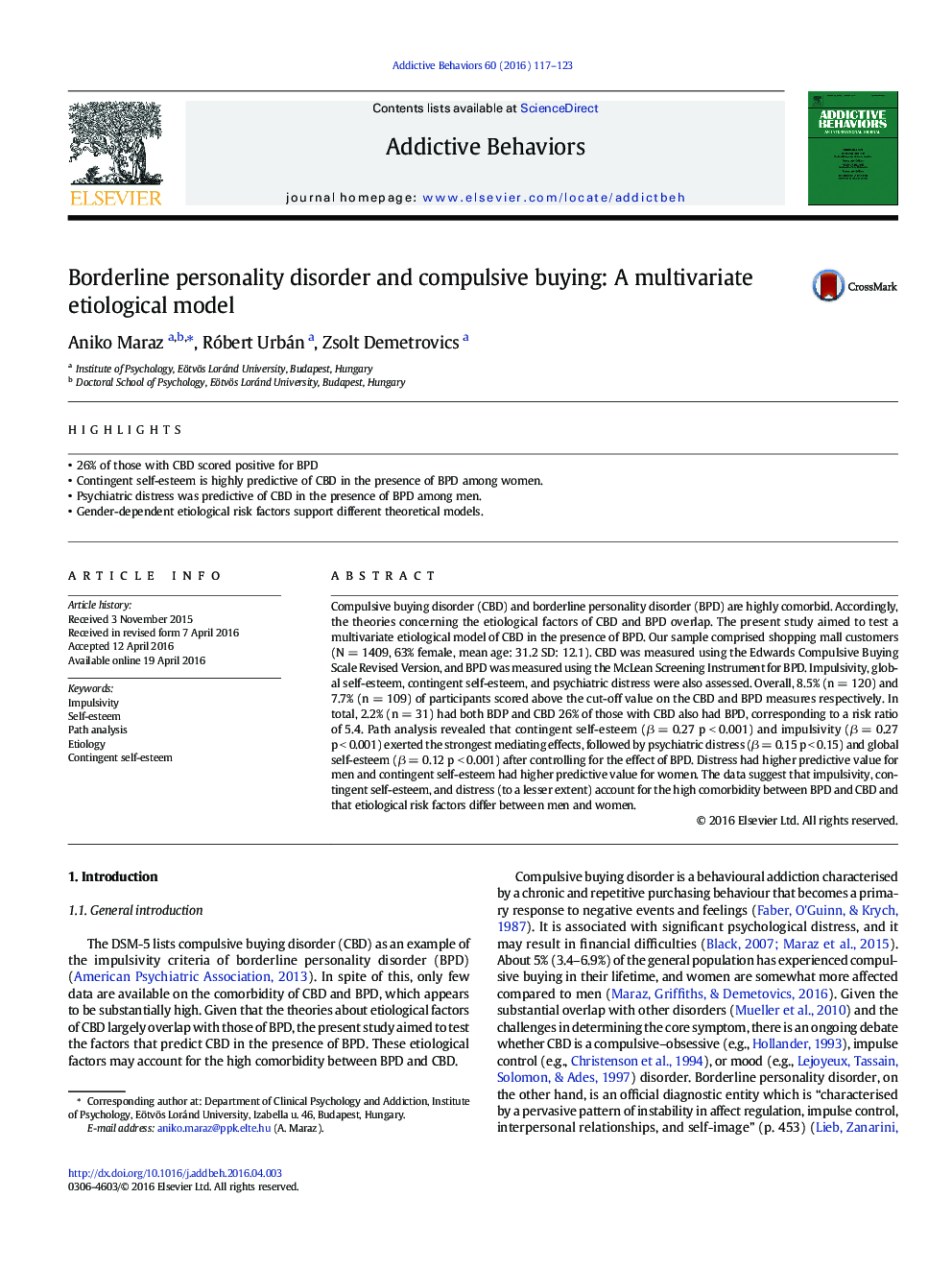| Article ID | Journal | Published Year | Pages | File Type |
|---|---|---|---|---|
| 7260078 | Addictive Behaviors | 2016 | 7 Pages |
Abstract
Compulsive buying disorder (CBD) and borderline personality disorder (BPD) are highly comorbid. Accordingly, the theories concerning the etiological factors of CBD and BPD overlap. The present study aimed to test a multivariate etiological model of CBD in the presence of BPD. Our sample comprised shopping mall customers (N = 1409, 63% female, mean age: 31.2 SD: 12.1). CBD was measured using the Edwards Compulsive Buying Scale Revised Version, and BPD was measured using the McLean Screening Instrument for BPD. Impulsivity, global self-esteem, contingent self-esteem, and psychiatric distress were also assessed. Overall, 8.5% (n = 120) and 7.7% (n = 109) of participants scored above the cut-off value on the CBD and BPD measures respectively. In total, 2.2% (n = 31) had both BDP and CBD 26% of those with CBD also had BPD, corresponding to a risk ratio of 5.4. Path analysis revealed that contingent self-esteem (β = 0.27 p < 0.001) and impulsivity (β = 0.27 p < 0.001) exerted the strongest mediating effects, followed by psychiatric distress (β = 0.15 p < 0.15) and global self-esteem (β = 0.12 p < 0.001) after controlling for the effect of BPD. Distress had higher predictive value for men and contingent self-esteem had higher predictive value for women. The data suggest that impulsivity, contingent self-esteem, and distress (to a lesser extent) account for the high comorbidity between BPD and CBD and that etiological risk factors differ between men and women.
Related Topics
Life Sciences
Neuroscience
Behavioral Neuroscience
Authors
Aniko Maraz, Róbert Urbán, Zsolt Demetrovics,
